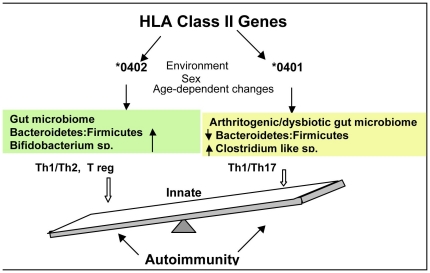Figure 7. Role of the gut microbiome in susceptibility to arthritis.
HLA genotype may shape the gut microbiome in an individual. The DRB1*0401 gene associated with predisposition to Rheumatoid arthritis, may induce a lower gut Bacteroidetes: Firmicutes ratio compared to that shaped by the DRB1*0402 gene, known to be associated with resistance to arthritis. This model suggests that a dysbiotic or arthritogenic gut microbiome may be dominated by a Clostridia-like bacterium (Firmicutes phylum) in susceptible individuals, while competent/tolerant immune responses are enhanced by increased abundances of Bifidobacterium spp. in resistance to RA. The gut microbiome has a crucial influence on maintaining homeostasis of the gut immune system by predicting pro-inflammatory (TH1/Th17) or anti-inflammatory (TH1/TH2) responses. Environmental triggers like smoking, diet and infectious agents along with sex hormones and age-dependent changes, may further modulate the gut immune system and enhance pro-inflammatory conditions in genetically susceptible individuals. In synthesis, an overall/systemic immune response generated by innate immune cells, may be originated at gut level and this response may be regulated by the gut microbiome via HLA genotype. This chain of events may determine the onset of autoimmune diseases like rheumatoid arthritis.

